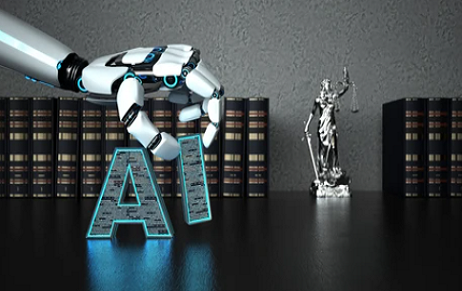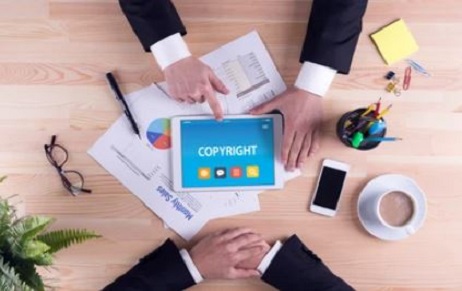Introduction Artificial intelligence (AI) has emerged as one of the biggest game-changers in recent years…
Corroboration of Rightful Ownership through Objection Provisions
Copyright
Indian Copyright law is greatly inspired by and in congruence with the TRIPS agreement clauses and standards. The stipulations of the Berne Convention for Protection of Literary and Artistic Works, 1886 and the Universal Copyrights Convention, to which India is a party reflect strongly in the (Indian) Copyright Act, 1957, pursuant to the amendments in 1999, 2002, and 2012. The Copyright Act, 1957 protects artistic work comprising of a painting, a sculpture, a drawing (including diagrams or maps or charts or plans), any given engraving, or a particular photograph, an artistic work of architecture or unique artistic craftsmanship, also including all dramatic work or literary work (including but not limited to computer programs, tables, compilations, and computer databases), musical work (including music as well as graphical notations), sound recording and cinematographic film.
Registration
It has been mandated by the Indian courts in a catena of judgments that copyright registration is not a mandatory pre-requisite for protection but it rather acts as a mere record of fact strengthening your claim. The copyright application should be made in Form XIV in respect of one work only with the required fees specified in the Second Schedule of the Copyright Rules, 2013 and it needs to be signed by the applicant, may it be author or owner. The application could be filed in person by the applicant or by post to the Copyright Office or by availing the online facility as provided on the website of the copyright office. The applicant should give a notice to third parties who claim to have interest in the subject matter or disputes the rights and if no such objection by third parties is received in thirty days, the Registrar shall publish the application in the Register of Copyrights. In case there is an objection to the application or any discrepancy found, the Registrar holds an inquiry and gives an opportunity of hearing the party and the process of registration is deemed completed only after the Registrar signs and issues a copy of the entry made in the Register.
Third-Party Objections
The Copyright Act, 1957 allows third parties to file objections against the copyright application if the subject matter is of their interest or if the right enumerated under the copyright protection is disputed by the third party. A liberal interpretation of section 16 of the Copyright Act, 1957 manifests the provision of third-party objections against the copyright application.
Section 16 of Copyright Act, 1957 is worded as:
“16. No copyright except as provided in this Act— no person shall be entitled to copyright or any similar right in any work, whether published or unpublished, otherwise than under and in accordance with the provisions of this Act or of any other law for the time being in force, but nothing in this section shall be construed as abrogating any right or jurisdiction to restrain a breach of trust or confidence.”
Section 16 of the Indian Copyright Act, 1957 mentions that not with regards to the fact that the work is already published or not, no person can claim any copyright in any work except with regards to clauses laid down in this section. The Supreme Court has in a catena of judgments have been clear about the interpretation of this given section. The Court held in Eastern Book Company v. D.B. Modak [1] that the work by any person which can be classified as copyrightable work is deemed to be the fruit-bearing of his labor and therefore needs to be appropriately protected. Moreover, the Court also held that it is considered as a social requirement that the copyright owners publish their works to ensure it gets maximum reach.
In forthcoming cases, the Courts in India acted in conformity with this approach and dismissed altogether the solicitation to preserve mere compilation of different works under copyright.[2] The works originated from the author or artist himself are protected under copyright and are not a mere copy of the original work. However, this cannot be considered to push the merit of originality anticipated to a remarkably high standard, rather brings in a graceful balance between ensuring worthy remuneration and acknowledgment of the efforts of the author while also maintaining an appropriate quality in the works bearing protection under the law.
A question to ponder upon that arose was when someone publishes an unpublished work without the consent of the author or artist, is there no recourse in law to remedy the situation by the rightful owner? The Indian Courts maintained that Section 16 acts as a prevention to a person who wishes to abrogate the rightful owner’s entitlement to prevent a breach of credence or certitude. This interpretation of section 16 of the Copyright Act, 1957, capacitates the third parties to object to the copyright applications to claim their rightful ownership.
Registration of a copyright is governed by Rule 70 of the Copyright Rules, 2013. The rule enlists the entire process to register the copyright. It also has a provision for third-party objections to the copyright application under Rule 70(9) read with Rule 70(10). The rules read out as:
“70. Application for Registration of Copyright.—
(9) The person applying for registration shall give notice of his application to every person who claims or has any interest in the subject-matter of the copyright or disputes the rights of the applicant to it.
(10) If no objection to such registration is received by the Registrar of Copyrights within thirty days of the receipt of the application, the Registrar of Copyrights shall, if satisfied about the correctness of the particulars given in the application, enter such particulars in the Register of Copyrights.”
A waiting period of thirty days, effective from the date of receipt of application is mandatory, for the intent of securing objection(s)/oppositions from the person(s)/third parties who claim or have any stake in the copyright subject matter or disputes the claims of the owner to the application given for registration. If no objection to such registration is received by the Registrar of Copyrights, the application is may be processed. However, this does not interpret that if any objection is received even after the expiry of the window period but before the registration of work shall not be entertained.[3]
If there is an objection to the copyright application by a third party, the Registrar should deliver a letter/notice to the concerned parties about the oppositions/objections and should schedule a hearing. The Registrar shall not reject the application without giving the applicant a chance to be heard. This Rule is in parity with the principle of Natural Justice “Audi Alteram Partem”. After the hearing, if the objections are resolved the Registrar will scrutinize the application and approve or reject the application as the case may be.
In an attempt to cut down delays in the examination of copyright applications, the Copyright Office through a public notice,[4] stated that it would be publishing the list of such applications received for registrations of copyright during the week i.e. Monday to Friday. The public notice mentioned that each publication on the website shall be considered as a notice to every person who claims to have any stake in the subject matter of copyright or has a dispute regarding the said application and the said application would be examined if no objection is received within 30 days. The public notice further mentions that in case there is failure to deliver work or documents after the notice is issued, then that application would be declared abandoned without further notice but liberty to make a new application would be given. The Copyright Office has declared that they shall publish the list of such applications every week on its website, preferably every Monday.
Conclusion
Copyright law protects the artistic brainchild of a person. It provides rights and claims upon it of the rightful owner. The procedure to register the work is very elaborate and it ensures that the rights of the owner are not abrogated. The provision to file an objection against the copyright application is a prerequisite to all the rightful owners. It is a statutory right of the owner to file objections and be heard regarding the same. However, on the flip side, it also delays the registration process due to frivolous objections made out of spite. The system instituted by the law is followed thoroughly by the Copyright Office and the rights of the rightful owners are preserved in the correct sense.
Author: Nupoor Gupte, a student of Government Law College, Mumbai, intern at IIPRD. In case of any queries please contact/write back to us at [email protected].
[1] 2002 PTC 641
[2] Dr. Reckeweg and Co. Gmbh. and Anr. Vs. Adven Biotech Pvt. Ltd, MANU/DE/0961/2008
[3] 6 (b) Practice and Procedure Manual 2018, Copyright Office.
[4] Public Notice of Copyright Office dated December 04, 2017.



